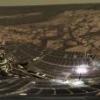The Sack of Constantinople 1204
-
Последна активност
-
- 2738 мнения
- 248444 прегледa
-
- 572 мнения
- 74660 прегледa
-
- 113 мнения
- 4134 прегледa
-
ПостИстина - що е то и един синтезен обход по психологическите и социалните му аспекти. 1 2
От ramus, in Психология и Логика
- 46 мнения
- 679 прегледa
-
Десетилетие по-късно все още чакаме да видим коя ще е втората фирма с възвръщаеми ракети
От SAlexandrov, in Космически науки
- 4 мнения
- 249 прегледa
-
-
Последно разглеждащи 0 Потребители
- No registered users viewing this page.




Препръчано мнение
Напиши мнение
Може да публикувате сега и да се регистрирате по-късно. Ако вече имате акаунт, влезте от ТУК , за да публикувате.